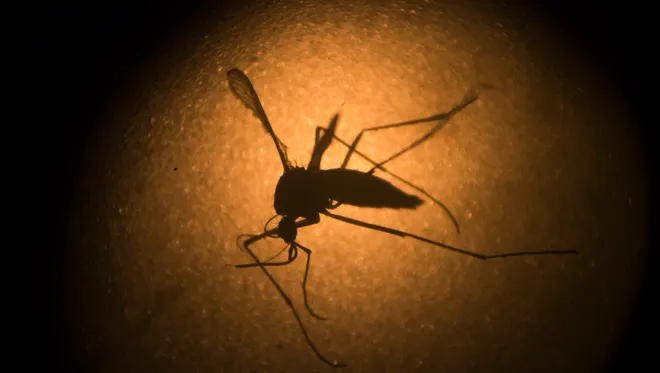Mosquito populations surge in parts of California after tropical storms and triple-digit heat
VENTURA, Calif. — Potent winter storms, summer heat, and tropical storm Hilary have bred a surge of invasive, day-biting Aedes mosquitoes in California, spawning in some regions the first reported human cases of West Nile virus in years.
The statewide rise has brought 153 West Nile reports so far, more than double last year's, according to the California Department of Public Health. It reflects a nationwide surge of the pest following an increase in rainfall in certain parts of the country and has stoked concern about other mosquito species, prompting urgings for people to drain standing water and take other measures.
The Culex mosquitoes carry the virus and are found across California, according to the state's public health department. In June, officials confirmed three dead birds were infected with West Nile in Simi Valley, Thousand Oaks, and Ventura.
Public health officials said the birds could be harbingers of increased virus risks, though no more infected birds have been found.
The virus often brings no illness and on occasion causes flu-like symptoms. In less than 1% of the cases, it can cause neurological conditions like meningitis and encephalitis.
"People need to be on their toes. They need to be concerned about mosquito bites," said Dr. Robert Levin, a health officer for Ventura County, where the first case of West Nile virus in four years was revealed Thursday.
Mosquito bite relief:How to get rid of mosquito bites and soothe the itch
'Final push'
The upswing in California is marked by if not a perfect storm, a stinging one.
First came the deluge of rain early in the year and triple-digit heat in July and August. Hilary, the hurricane-turned tropical storm, provided the exclamation point by pouring several inches of rain on pools, flower pots, arroyos, and other breeding grounds.
"It was the final push. It provided the mosquitoes just what they needed," said Cary Svoboda, lead of a mosquito control program at the Ventura County Environmental Health Division.

Zapping in self-defense
The Culex mosquitoes can be dark or light brown. They mostly bite from dusk to dawn.
Aedes aegypti mosquitoes are small and black with white stripes on the back and legs. They bite aggressively during the daytime, sparking concern because they have the potential to carry diseases like Zika, dengue, chikungunya, and yellow fever, though there are no reports of that happening in California.
For years, the Aedes mosquitoes were found in Los Angeles and Kern counties but not in Ventura. That changed in 2020 when the invasive species, also known as yellow fever mosquitoes, were discovered in several local communities.
Reports of Aedes aegypti have leaped this year, Svoboda said.
Reduce risks
Aside from bug zappers, vector control, and public health officials push people to take other steps:
- Empty standing water from buckets, barrels, saucers under flower pots and other containers.
- Clean properties of toys and other objects that can hold water.
- Replace water in pet dishes and bird baths.
- Repair damaged screens on doors and windows.
- Wear insect repellent outdoors, especially at dusk and dawn.
- Report mosquito activity to a hotline at 1-805-658-4310.
- For mosquito fish that can be used in pools and ornamental ponds, call 1-805-662-6582.
Disclaimer: The copyright of this article belongs to the original author. Reposting this article is solely for the purpose of information dissemination and does not constitute any investment advice. If there is any infringement, please contact us immediately. We will make corrections or deletions as necessary. Thank you.





